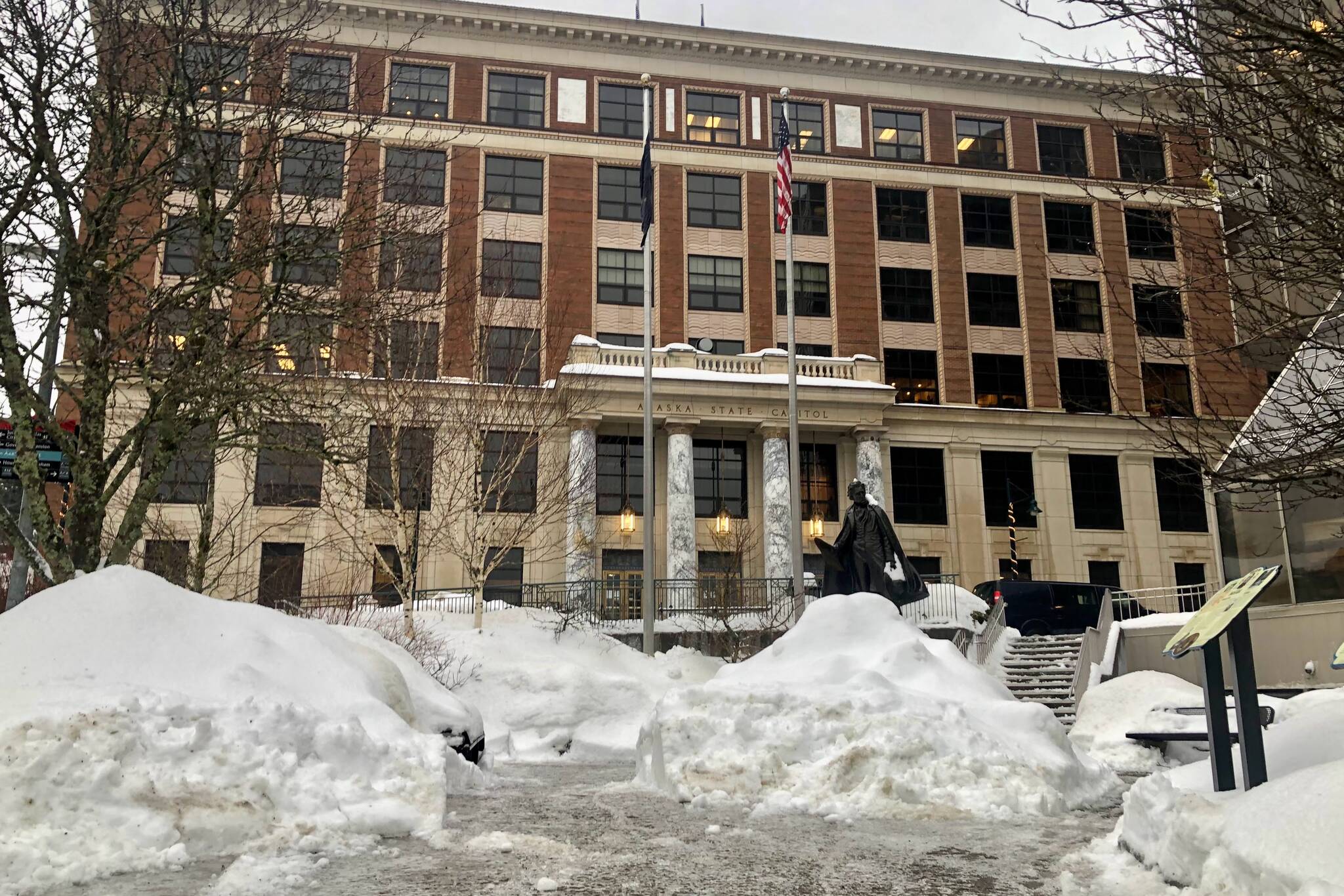A commission tasked with reviewing legislative pay on Tuesday voted to raise the annual salary for Alaska lawmakers but to restrict the daily allowance lawmakers can receive. The changes will go forward unless the Legislature expressly rejects them.
The Alaska State Officers Compensation Commission voted 3-1 to raise the base salary from $50,400 a year to $64,000. The recommendation would cap at $100 a day an allowance that lawmakers could claim during regular sessions and require monthly receipts for reimbursement.
The panel also called for lawmakers to receive a state employee per diem rate plus lodging for special sessions called by a governor, according to commission secretary Kate Sheehan, who is director of the state Division of Personnel and Labor Relations. That rate is currently $60 a day, she said. There would be no per diem if lawmakers call themselves into special session, she said by email.
The recommendation was tweaked from an earlier one, advanced earlier this month, that proposed the salary hike but also a simple allowance cap at $100 a day that would be reimbursement-based. That earlier proposal made no distinctions between regular and special sessions.
Tuesday’s vote came the same day that a new legislative session began in Juneau.
Most special sessions over the last decade have been called by a governor, according to records from the Legislative Affairs Agency.
Currently, the allowance lawmakers are entitled to is $307 a day, based on a federal rate, said Jessica Geary, executive director of the Legislative Affairs Agency. That is up from $293 a day last year. Per diem can’t be claimed by a legislator if the session is held within 50 miles (80 kilometers) of their primary home. That means the three lawmakers from Juneau aren’t entitled to per diem during sessions in the capital city.
The commission’s chair, former state Sen. Johnny Ellis, said he thought there was a “good likelihood” lawmakers would reject the recommendations as “inadequate and complicated.” He also said he did not think the recommended changes were durable. Nonetheless, he said he would be a “reluctant” yes, so that the commission would have a “work product” at the end of its endeavors.
The allowance is intended to help with costs related to living part of the year in Juneau, which is accessible by air or water and is a popular destination for cruise ships during the summer.
Rep. Zack Fields, an Anchorage Democrat, in written comments to the commission, said expenses in Juneau are “astronomical” in the summer, when special sessions are sometimes held. He said the job of being a legislator is a year-round commitment and that any changes to salary and per diem “should also take into account expenses and foregone revenue for families.”
“We have to be a place that is open to families, because parents’ perspectives are needed in the legislature,” he wrote.
By law, commission recommendations will go through unless a bill rejecting all the recommendations is enacted within 60 days after their submission. The commission also proposed salary increases for the lieutenant governor and state department heads, who last saw increases in 2011 and 2015, respectively, according to a commission report.
The commission proposed a 1% increase for each year since the last salary increases, the report states.
Republican Gov. Mike Dunleavy told the commission he declined a salary increase for his position.
Alaska’s lieutenant governor is Kevin Meyer. He recently announced he would not seek reelection this year. Dunleavy has announced plans to seek reelection. He has not yet announced a running mate.
State law requires recommendations pertaining to lawmakers, if enacted, to take effect next year. Those related to the lieutenant governor and department heads would take effect July 1.

